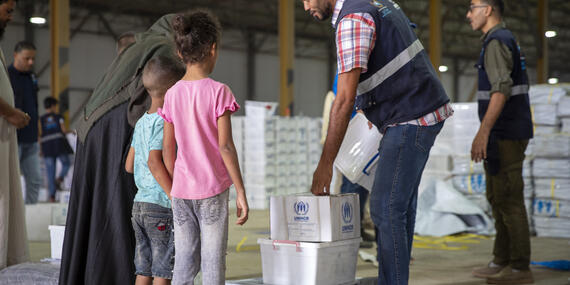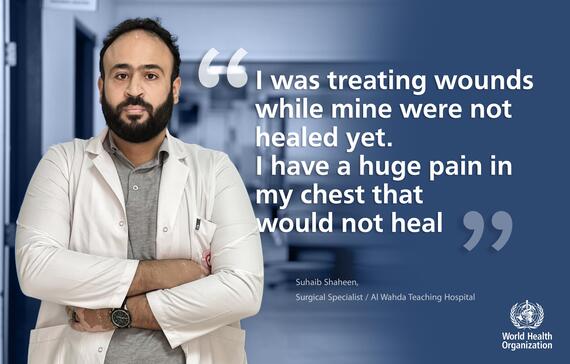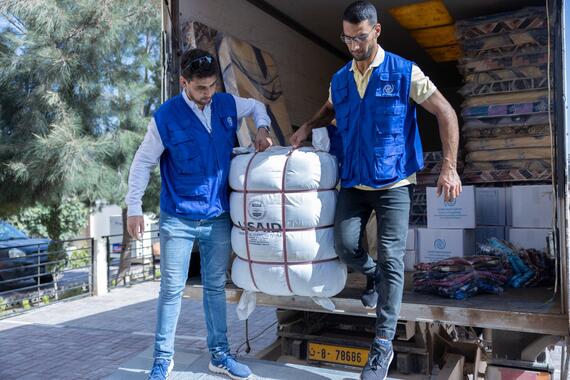Libya: Flood survivors find refuge on the roof

The recent floods in Derna, eastern Libya, left more than 4,000 people dead, and thousands more are still missing. The science is now clear: Climate change was a significant factor in causing and exacerbating this extreme weather event.
Worried about the dams
Weeks after the Derna tragedy, Naiema can still hear her neighbours’ screams as they were swept to their deaths.
On that fateful night, Naiema couldn’t sleep. It was pouring with rain, and she was worried about the dams.
She was right to worry.
Water started streaming into her apartment at around 3 a.m. Looking out the window, she watched in disbelief as huge waves dragged cars, bodies, furniture. She knew that she and her husband would be next. It wasn’t long before a sea of water and mud carried them from one room to another as they clung to each other. It then slammed them against a wall before throwing them into the bathroom.
Miraculously, water receded through their broken windows, and they didn’t drown. But Naiema’s husband started shivering, and when she turned around to fetch him a blanket, she no longer recognized her own home.
Naiema and her husband are now in Benghazi, still in deep shock, and staying in a compound donated by a local businessman.
Rooftop refuge
A few doors down lives Aisha,* her husband and their three children. Originally from Syria, they moved to Derna in 2012 to flee the war back home. The story of their escape from the floods is equally bone-chilling.
There was a power cut that night, so they left the door of their home slightly open. In the middle of the night, they heard a loud explosion. When Aisha looked out the window, she saw water gushing out of the sewers on the street.
Within seconds the water was in her bedroom, and it was rising fast, first up to their knees, then quickly up to their waist. Without much time to think or even look back, Aisha and her family dashed out of their house and sought refuge, initially with their first-floor neighbour, then 15 minutes later with their neighbour above, as the water kept rising. But it didn’t stop rising, and so they ended up on the roof.
From there, they looked down at what used to be an empty square by their house, now full of floating vehicles and fallen trees.
When day broke, they decided to seek shelter in a nearby school. They made their way downstairs and out of the building, barefoot, wading through mud, debris and dead bodies.
They soon heard about the compound in Benghazi and headed there.

Will they ever return home?
Aisha and her husband don’t know how long they’ll stay in Benghazi. They don’t know if their children will go back to school. They don’t know if they’ll ever go back home.
But at least they know that their family is safe, and they still have each other.

OCHA's response
The humanitarian community is on the ground helping people like Aisha and Naiema with protection, shelter, clean water, health care and food. So far, more than 20 humanitarian partners have reached 146,000 people with life-saving assistance.
We are appealing for US$71.4 million to help a quarter of a million people in Libya over the next three months. However, the appeal is 30 per cent funded so far.
*Name changed
